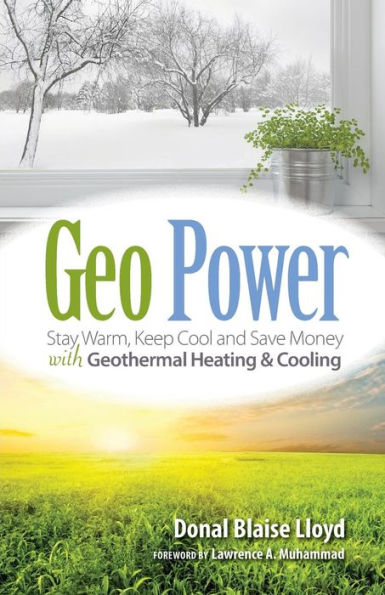Home
Residential Geothermal Systems: Heating and Cooling Using the Ground Below
Barnes and Noble
Residential Geothermal Systems: Heating and Cooling Using the Ground Below
Current price: $25.00


Barnes and Noble
Residential Geothermal Systems: Heating and Cooling Using the Ground Below
Current price: $25.00
Size: OS
Loading Inventory...
*Product information may vary - to confirm product availability, pricing, shipping and return information please contact Barnes and Noble
Interest in residential geothermal systems has grown as more people realize they can replace their fossil-fuel heating system with one that is three to five times more efficient and doesn't require a chimney to exhaust noxious fumes. Currently in the USA there is a federal 30% tax credit that applies to the total installation cost. These newer, safer systems provide heating as well as cooling simply by transferring heat between the home and the ground or a nearby body of water. Since this is a relatively new technology, the number of experienced installers is limited, but growing. Therefore, there is a burden on homeowners interested in installing one of these systems to absorb as much information about residential geothermal systems as possible. This book was written specifically to meet that need as well as to help HVAC professionals who are new to residential geothermal systems.
Readers will learn how heat pumps are able to extract heat from relatively low temperature water circulating in ground loops and raise it to a temperature high enough to heat a home. They will also learn how to estimate the size of the heat pump required and the ground loop size as well for straight 2-pipe, 4-pipe, 6-pipe and Slinky loop configurations. This is important in order to verify that the installer correctly sizes the system. An incorrectly sized system will result in an unhappy homeowner. Both horizontal and vertical loop systems, for GX and DX, are covered.
Some of the technical issues that are addressed include: Loop water flow rates and Reynolds Number, heat of extraction/rejection, heating capacity, desuperheater setup, open-loop/closed-loop, SCW, pond loops, DX, Manual-J, COP. The final chapter consists of a set of flowcharts guiding the homeowner to ask the pertinent questions needed for a successful installation.


















